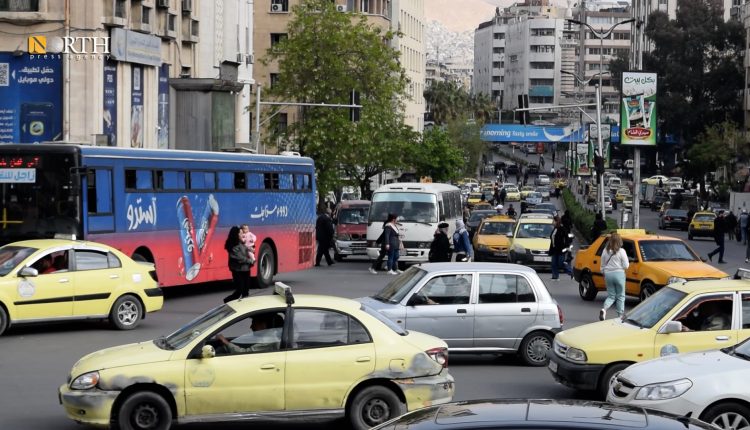
By Kardo Roj
DAMASCUS, Syria (North Press) – As Syria emerges from more than a decade of devastating conflict, many of its citizens and economic experts say the path to economic recovery cannot begin without first lifting international sanctions—chiefly those imposed by the United States.
Years of war have decimated Syria’s oil infrastructure, agriculture, power grids, and transportation networks. The Syrian pound has collapsed, and the central bank’s foreign currency reserves are nearly depleted. In this context, Syrians are asking: What are the true first steps toward rebuilding?
Sanctions, Not Just Aid
Many Damascus residents argue that lifting sanctions is more crucial than humanitarian aid, which they say is insufficient and short-term in nature.
Ossama Ibrahim, a local resident, told North Press: “Lifting the sanctions is better than receiving aid. Aid is usually a one-time thing, but lifting sanctions could lead to long-term recovery and broader benefits for society.”
He added that humanitarian aid reaches only a tiny fraction of Syrians—“maybe just 0.1%”—while sanctions impact everyone, choking economic opportunities and daily life.
Mahmoud Assuma, an electrical engineer in Damascus, echoed this sentiment. “Sanctions have halted factories, displaced youth, and dried up job prospects,” he said. “Removing them would allow us to build a strong, competitive industrial economy.”
Expert Views: Sanctions, Debt & Investment
Syrian participation in March’s Brussels Donors’ Conference, where international pledges reached $6.3 billion in humanitarian aid, was seen by some as a positive step. But many experts caution that these commitments alone will not fuel economic revival.
Dr. Ali Kanaan, Dean of the Faculty of Economics at Damascus University, described the conference as “a signal of hope,” but warned against reliance on massive loans.
“Borrowing $50 to $100 billion would burden Syria for decades,” he said. “Instead, we should focus on attracting foreign investments and leveraging our own capacities. Aid and investment are preferable to long-term debt.”
Despite the absence of the U.S. at the conference, Dr. Kanaan noted that Washington’s tacit approval of the event—by not blocking it—could indicate future flexibility.
Dr. Abdul Qader Azouz, Professor of International Relations and head of the economics department at Damascus University, was more blunt: “Sanctions are the single most significant obstacle to recovery. The regime has survived them—but the people have not. There’s no longer any valid justification to maintain them.”
He described the partial suspension of EU sanctions as “insufficient,” emphasizing that American restrictions continue to hinder logistical operations and deter international business.
U.S. Position and Legal Status Shift
Recently, the U.S. downgraded Syria’s representation at the UN, labeling its mission as a delegation of a government not recognized by Washington. This move comes amid quiet debates in U.S. policy circles about the future of sanctions in light of Syria’s evolving political landscape.
Western nations remain wary of directly engaging with Syria’s new transitional government—some of whose members have controversial pasts, including former ties with extremist factions. This hesitation continues to complicate the country’s path toward recovery.
What Now? Structural Reform Needed
Experts agree that rebuilding Syria requires more than aid and fewer sanctions. It also demands structural economic reform: a revamped central bank, restored institutions, and effective monetary policy.
The Syrian people are watching closely. Many believe that real economic revival begins with political legitimacy, international engagement, and the removal of the financial shackles imposed during the war.
Until then, hope hinges on slow-moving diplomatic winds—and the resilience of those determined to rebuild from the rubble.
